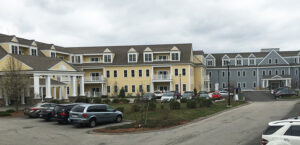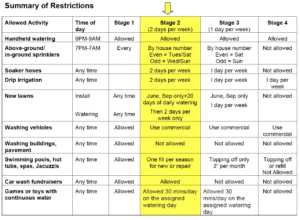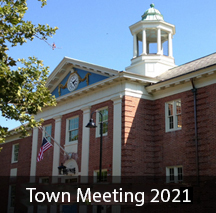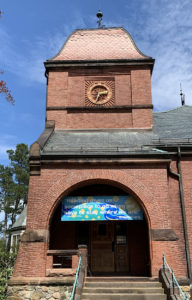Lincoln’s biggest taxpayer is changing hands for the second time, but the new owners have agreed in principle to negotiate an arrangement for paying property taxes or a PILOT agreement (payment in lieu of taxes).
The Commons in Lincoln is currently owned by Benchmark Senior Living and a private equity firm. The Groves in Lincoln, as it was called when it opened in 2010, was owned by the New England Deaconess Association and Masonic Health Systems of Massachusetts but had an occupancy rate of only 59% in 2013, when it filed for bankruptcy after defaulting on payment of $88.4 million in tax-exempt bonds.
After the sale goes through, the new owner and Benchmark will sign a long-term contract to retain Benchmark as the manager of The Commons, said David Levesque, Benchmark’s Senior Director of Corporate Communications, in an email to the Lincoln Squirrel. “This ensures that The Commons’ residents continue to receive the same level of care and services provided by current Benchmark employees.”
According to the terms of the project’s original approval from the town, the Select Board must sign off on any sale of the property, but that process hit a snag this week over the question of whether the new owners would continue to pay property tax. As a nonprofit entity, they would legally’ be exempt from paying any taxes on the property.
“You may well lose the tax revenues you’ve been benefiting from the last several years,” attorney Shirin Everett told the Select Board on December 13. Everett works with the KP Law, the town counsel.
Benchmark, a for-profit entity, has a fiscal 2022 property tax bill of $1.38 million on an assessed value of $9 million, or about 4% of Lincoln’s $34.57 million in total assessed property, according to the Assessor’s Office.
At Monday’s meeting, Town Administrator Tim Higgins noted that New England Deaconess was also nonprofit but voluntarily paid property taxes,” so there’s a precedent.” Select Board member James Craig made a motion to approve the sale contingent on restrictions in the current agreement (specifically, that the 30 units in the Flint building will continue to be designated as affordable, “and that the town and buyer enter into an agreement for PILOT if property is not otherwise taxable.”
But Benchmark representative Melissa Solomon objected, saying she was “very concerned” with that wording. The stipulation was not part of the original agreement language, which was silent on the tax issue but said that the town’s approval for a sale couldn’t be “unreasonably withheld.”
“We want to memorialize somehow that the new owner will be willing to enter in negotiations to make voluntary payments if they’re operating under a not-for-profit status,” Craig said, adding that it was the town’s fiduciary responsibility to try to maintain the revenue from The Commons. “Verbal assurances are great but mean nothing.”
“We are happy to sit down and discuss this property tax dilemma but the regulatory agreement can’t be not granted because of a a property tax question,” said Sarah Laffey, Managing Director for Capital, Strategy and New Initiatives at OnePoint Partners, which is advising and representing the buyers (NELP-Commons LLC).
The motion’s wording was suggested by town counsel, Craig said, although Everett had to leave the meeting before that discussion took place.
Temporarily at an impasse, the board decided to defer its vote until a special meeting on the morning of December 16. In the interim, town officials asked the buyer to declare its intentions in writing. Laffey accordingly emailed Higgins saying that “immediately following the closing, the buyer intends to enter into good-faith negotiations” for a PILOT agreement (something that most universities and other large nonprofits have with their host communities). The board then voted to approve the sale without the PILOT language in the motion.

A map showing the assisted living and skilled nursing facilities built at The Commons by Benchmark on the northeast side of the campus (click to enlarge).
“The sale of The Commons by its current owners — a private equity group and a Benchmark Senior Living affiliate — is not unexpected. The investors’ business plan was to stabilize the then-bankrupt community and help the community meet its full potential, and that was accomplished,” said Levesque, who declined to disclose the sale price.
After taking over in 2013, Benchmark built a health center with memory care and skilled nursing units, upgrading The Commons to a full continuing-care retirement community (CCRC) in addition to the independent living it already offered. After the bankruptcy and sale in 2013, the town approved a plan to build those facilities on part of the campus that was originally intended for second-phase construction of more independent living units, complementing the 168 units in two apartment-style main buildings and 38 cottages.
“Within one year of opening the full campus, The Commons was over 90% occupied and has sustained that occupancy since. The Commons is now positioned for a new ownership structure that is more consistent with its industry peers, said Levesque, adding that “the vast majority of CCRCs throughout the country and in Massachusetts are not-for-profit.”









